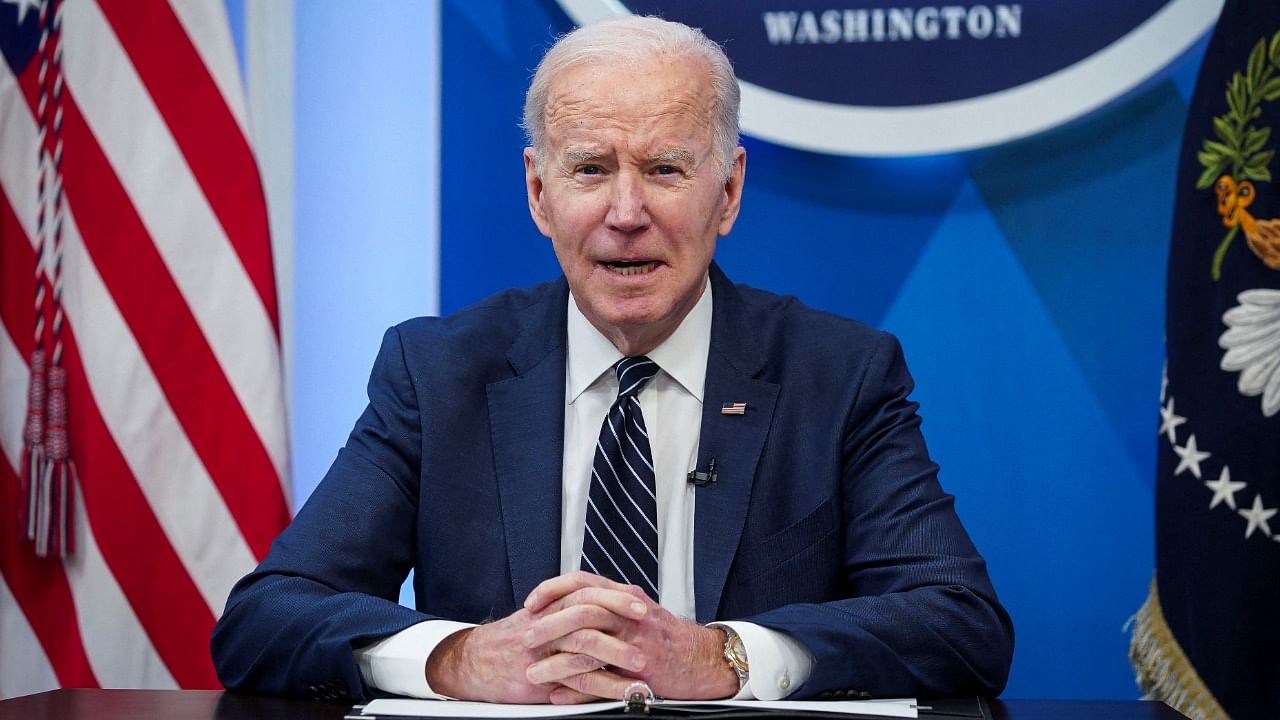
US President Joe Biden laid out to Chinese leader Xi Jinping on Friday the "consequences" of any backing for Russia in its war against Ukraine, the White House said, as Beijing showed no sign of joining Western condemnation of the invasion.
The comments came during a nearly two-hour phone call between the leaders of the world's two largest economies, focusing on Ukraine, where China's close ally Russia is in the fourth week of a bloody assault.
The White House said that Biden described to Xi "the implications and consequences if China provides material support to Russia as it conducts brutal attacks against Ukrainian cities and civilians."
The White House refused to characterize Xi's response to the warning or say how hard Biden pushed him. "It wasn't about making asks, it wasn't about making assessments. It was about having an ongoing dialogue," Press Secretary Jen Psaki said.
But she said that "is something we'll be watching and the world will be watching."
Beijing was ambiguous about Xi's position after the call.
Chinese state television CCTV reported that Xi said the war was "in no one's interest" and that "state-to-state relations cannot go to the stage of military hostilities."
However, there was no mention of direct criticism of Russian President Vladimir Putin and a readout from the Chinese foreign ministry laid some responsibility for Russia's invasion of its neighbor to the West.
"The US and NATO should also have dialogue with Russia to address the crux of the Ukraine crisis and ease security concerns of both Russia and Ukraine," the foreign ministry noted.
With the Chinese leader refusing to condemn Putin, Washington fears Beijing could go further, delivering financial and military support to Russia and transforming an already explosive transatlantic standoff into a global dispute.
If that were to happen, not only could China help Russia to weather sanctions and continue the war, but Western governments would face the painful decision of how to strike back at the world's second-biggest economy, likely prompting turmoil on international markets.
Washington is racing to ward off that crisis, both by warning of fallout for China and appealing to Xi's ambitions to be a world player.
China should "understand that their future is with the United States, with Europe, with other developed and developing countries around the world. Their future is not to stand with Vladimir Putin," Deputy Secretary of State Wendy Sherman told CNN.
Secretary of State Antony Blinken earlier urged China to use its "leverage" on Moscow.
The Biden-Xi call -- the first since November -- came after US National Security Advisor Jake Sullivan and Yang Jiechi, the Chinese Communist Party's chief diplomat, held what the White House called a "substantial" seven-hour meeting in Rome this week.
Against a backdrop of already intense US-Chinese tensions over Taiwan and trade disputes, the ability or failure of Biden and Xi to come to an understanding on the unfolding mayhem in Europe will reverberate widely.
Xi and Putin symbolically sealed their close partnership when they met last month at the Winter Olympics in Beijing -- just before Putin launched his onslaught on Ukraine.
Since then, Beijing has stood out by refusing to join the international outcry over the invasion, while taking the Russian line in blaming the United States and NATO. Chinese authorities even refuse to refer to the invasion as a "war," again in keeping with Kremlin talking points.
But China has also tried to remain somewhat ambiguous, declaring support for Ukraine's sovereignty.
Brookings Institution fellow Ryan Hass, a former advisor on China to president Barack Obama, said Beijing has to sort through its clashing priorities.
Despite the coziness with Moscow, China -- the world's biggest exporter -- is tightly bound to the United States and other Western economies. It also wants to play a leadership role in the world.
"China's and Russia's interests are not in alignment. Putin is an arsonist of the international system and President Xi sees himself as an architect for remaking and improving the international system," Hass said.
"President Xi is trying to balance competing priorities. He really places a lot of value in China's partnership with Russia but at the same time he does not want to undermine China's relations in the West."
Check out latest DH videos here